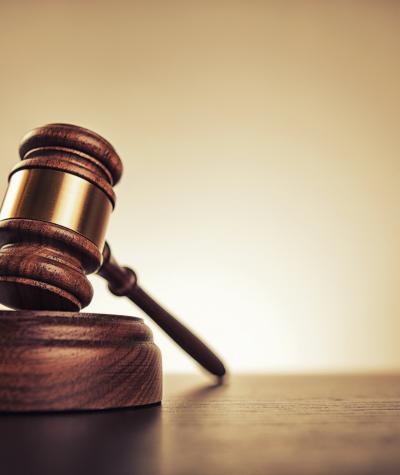Bombshell revelations from President Trump and his lawyer Rudy Giuliani came out last week about a hush money payment to adult-film actress Stormy Daniels just days before the 2016 presidential election. The media has added a new layer to scrutiny of the Trump campaign — but more importantly — they have unearthed serious questions about whether campaign improprieties have legal consequences or whether our nation’s laws are merely unenforced suggestions.
Giuliani made news by revealing for the first time that in October 2016, Trump reimbursed his lawyer Michael Cohen for the payment to Daniels. Campaign Legal Center (CLC) experts were called upon by dozens of media outlets to deploy their expertise in election law, conducting interviews on broadcast, print, and radio publications about the unusual campaign finance scandal that has rocked Washington.
While it is easy to miss behind the flashy sex-scandal headlines that have dominated media attention in recent weeks, this issue is really about voters’ right to know who is funding elections. As CLC General Counsel Larry Noble explained in a Q&A posted by CNN’s Chris Cillizza, the Federal Election Campaign Act (FECA) prohibits contributions above $2,700 per election to a candidate. FECA also requires that a campaign committee publicly report all contributions and expenditures that exceed $200 in an election cycle.
Enforcing FECA falls to the Federal Election Commission (FEC). If the agency allows the Trump campaign to get away with an unreported $130,000 expenditure just days before a presidential election, this sends a signal to future candidates and campaigns up and down the ballot that they can ignore provisions of campaign finance law, which were put in place to protect the integrity of elections. This is a troubling prospect. It’s especially troubling because the evidence is so strong in this case.
As CLC President Trevor Potter notes in his opinion piece in The Washington Post, the central reason for this payment was to avert another Trump sex scandal in the closing days of the 2016 campaign. The circumstances of the payment all point to the evidence that it was election-related. The payment was made hurriedly, just days before the election, and shortly after the Trump campaign had already been battered by the “Access Hollywood” tapes and other women alleging sexual harassment. As Giuliani told Fox & Friends: “Imagine if that came out on October 15th, 2016, in the middle of the, you know, last debate with Hillary Clinton.” This statement by Giuliani, taken with the knowledge that Trump reimbursed his lawyer for the payment, strengthens the argument that this was a violation of campaign finance law by the Trump campaign for accepting an excessive contribution and failing to report it. As CLC’s Director of Federal Reform Brendan Fischer pointed out in an interview with NBC, Giuliani’s reference to the debate makes the electoral purpose of the payment clearer than it already was.
In an interview with NBC Nightly News, CLC Senior Director of Trial Litigation Adav Noti, who previously served as Associate General Counsel at the FEC, said that there was a knowing and willful attempt to evade campaign finance law, which could make this entire scheme fit under the category of criminal activity.
On its face, the legal issue here appears to be only a campaign finance issue.
When you dig a little deeper, the legal problems could go further. As CLC pointed out on Thursday in a statement to the press explaining this matter, President Trump finds himself between something of a rock and a hard place.
If the payment was a loan from Cohen, as Giuliani claimed, Trump was required to disclose it in the financial disclosure report that he filed in June 2017 with the Office of Government Ethics. The law required him to disclose any loan that was greater than $10,000 at any time during 2016 or the first half of 2017. He did not disclose it and, if the omission was intentional, he could be subject to civil or criminal penalties.
As reported by CNN, Senior Director of Ethics at CLC Walter Shaub pointed out how the omission of the Stormy Daniels payment was unlikely to have been an accident. Walter points out that Trump personally certified that his disclosure was complete and correct. Failing to complete a financial disclosure form properly could amount to a legal violation. Walter would know, he was Director of the Office of Government Ethics from 2013 until July 2017 and oversaw the agency’s review of disclosure forms during the Trump transition period.
Watch Trevor's appearance on CBS' 60 Minutes about this issue.
